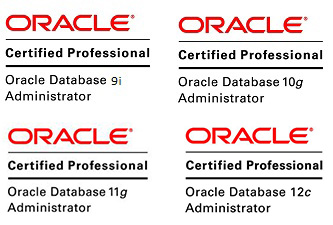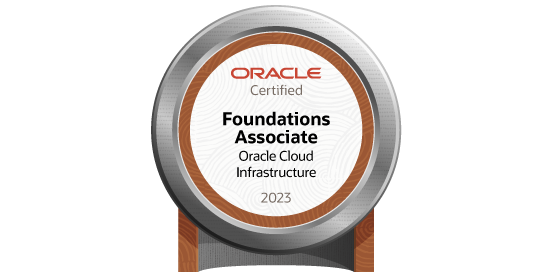How to Kill Single & Multiple Sessions in Oracle Database 11gR2
Posted by Mir Sayeed Hassan on January 15th, 2019
How to Kill Single & Multiple Sessions in Oracle Database 11gR2
To kill the Oracle session in a database, you should be careful with the consult team to kill the correct session as per there requirement.
Database Status:
sys@TESTDB> select instance_name,version,status from v$instance; INSTANCE_NAME VERSION STATUS --------------------------------------------------------- testdb 11.2.0.4.0 OPEN
Fetch the session with respective USER
sys@TESTDB> select sid, serial#,status from v$session where username = 'MIR'; SID SERIAL# STATUS ---------------------------- 167 38231 INACTIVE
To disconnect the session:
sys@TESTDB> alter system disconnect session '167,38231' post_transaction; System altered.
sys@TESTDB> alter system disconnect session '167,38231' immediate; System altered.
Or
To kill the session:
sys@TESTDB> alter system kill session '167,38231’; System altered.
Brief Note: The disconnecting a session is very much similar to “KILL” a session, whereas “KILL” session inform session to kill itself but the disconnect session it kill the dedicated server process which is equivalent to killing from OS level.
Post_Transaction clause actually it waits for ongoing transactions to complete before disconnecting the session
Immediate clause disconnects the session and ongoing transactions are rolled back immediately.
Note: You can’t kill the active Session; therefore the session should be INACTIVE to perform the kill operation as shown below
sys@TESTDB> alter system kill session '456,211' immediate; alter system kill session '781,7775' immediate * ERROR at line 1: ORA-00027: cannot kill current session
Find the ACTIVE/INACTIVE with respective to users in database
SQL> select s.status, count(1), s.username from v$process p, v$session s where paddr(+)=addr group by s.status, s.username order by 1; STATUS COUNT(1) USERNAME -------------------------- ACTIVE 1 SYS ACTIVE 1 SYSMAN INACTIVE 4 DBSNMP INACTIVE 9 CHARGES INACTIVE 1 PUBLIC INACTIVE 797 REALNFC INACTIVE 7 SYSMAN INACTIVE 1 SYSTEM 13 rows selected.
If you would like to kill the multiple INACTIVE session at a same time, Perform the below query
SQL> select 'alter system kill session ''' ||sid|| ',' || serial#|| ''' immediate;' from v$session where status='INACTIVE'; 'ALTERSYSTEMKILLSESSION'''||SID||','||SERIAL#||'''IMMEDIATE;' ------------------------------------------------------------- alter system kill session '3,52181' immediate; alter system kill session '4,33082' immediate; alter system kill session '5,26612' immediate; alter system kill session '6,20138' immediate; alter system kill session '7,25950' immediate;
Find your session and machine from which you are connected
SQL> select sid,serial#,status,machine,osuser,to_char(LOGON_TIME, 'DD-MON-YYYY hh24:mi:ss') as LOGON_TIME from v$session; SID SERIAL# STATUS MACHINE OSUSER LOGON_TIME ---------- ---------- -------- --------------------------------------------------- 1 1 ACTIVE CentralEtickDB oracle 29-OCT-2018 03:55:15 2 1 ACTIVE CentralEtickDB oracle 29-OCT-2018 03:55:16 6 20145 INACTIVE nfc-UAT nfc 15-JAN-2019 11:08:04 7 26205 INACTIVE production-two tomcat 15-JAN-2019 11:46:10 11 30356 INACTIVE nfc-UAT nfc 15-JAN-2019 11:42:59
Find the INACTIVE session which are using last more than 24 hours
SQL> select s.last_call_et,s.username, s.* FROM v$session s WHERE s.last_call_et > (60*60*24) and status = 'INACTIVE' order by 1 desc;
If you wish you KILL multiple sessions of a particular user :-
sys@TESTDB> select 'alter system kill session ''' ||sid|| ',' || serial#|| ''' immediate;' from v$session where username='MIR'; no rows selected
We can use the profile to kill the session as per our requirement
Create a Profile as shown below:
There is different way to control the session to use in database profile, 2 types are
CONNECT_TIME: The maximum elapsed time in minutes for a session, whether it is active or not.
IDLE_TIME: The maximum period of continuous inactive time in minutes.
Therefore the session which exceed the resource limits are killed by using the profile to a user.
If you wish to kill sessions which is older than 2 hr
sys@TESTDB> create profile KILL_PROFILE_2HR limit connect_time 120; Profile created.
Kill sessions that have been inactive for 1 hour.
sys@TESTDB> create profile KILL_INACTIVE_PROFILE_1HR limit idle_time 60; Profile created.
Kill sessions older than 2 hours or inactive for 1 hour.
sys@TESTDB> create profile KILL_OLD_OR_INACTIVE_PROFILE limit connect_time 120 idle_time 60; Profile created.
Assign the relevant profile to a user: Example: USER – “MIR”
sys@TESTDB> alter user MIR profile KILL_OLD_OR_INACTIVE_PROFILE; User altered.
sys@TESTDB> select username,account_status,profile from dba_users where username='MIR'; USERNAME ACCOUNT_STATUS PROFILE ----------------------------------------------------------------- MIR OPEN KILL_OLD_OR_INACTIVE_PROFILE
sys@TESTDB> SELECT SYSTIMESTAMP(3) FROM dual; SYSTIMESTAMP(3) --------------------------------------------------------------------------- 15-JAN-19 02.24.41.933 PM +03:30
sys@TESTDB> select sid,serial#,status from V$session where username='MIR'; SID SERIAL# STATUS ----------------------- 173 16827 INACTIVE
As per the applied profile to the user “MIR”, it’s should get killed with the given condition with respect to given profile.
sys@TESTDB> select sid,serial#,status from V$session where username='MIR'; no rows selected.






